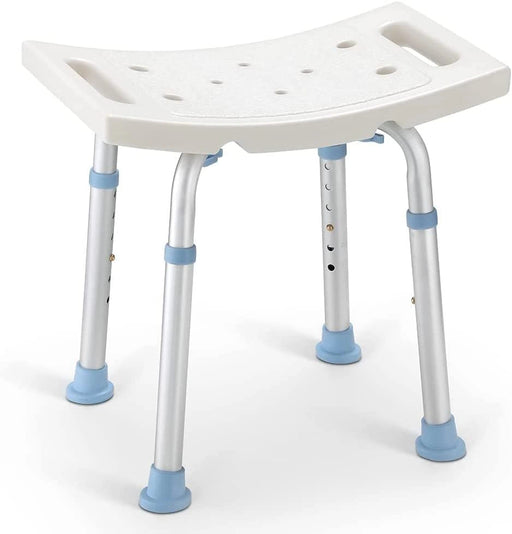Tips for Seniors to Prevent Hemiparesis
As we become older, the threats to our health only multiply. One of the disorders that are common in older adults is known as hemiparesis.
What exactly is meant by the term hemiparesis?
Hemiparesis is a frequent post-stroke complication that produces paralysis on one side of the body. This asymmetrical weakness may restrict your mobility and impact all of your daily activities, including dressing, dining, and moving.
What would lead to hemiparesis?
The most typical reason for hemiparesis is having a stroke. When you have a stroke, specific regions of your brain do not receive the oxygen that they need, which results in the death of the cells in those regions. Damage to these bodily components may lead to hemiparesis if they are connected to the body's strength or mobility in any way.
What clinical symptoms are associated with hemiparesis?
Hemiparesis may cause weakness on either the ipsilateral (the half of the body that the brain damage occurred on) or the contralateral (the other half of the body). If you suffer a stroke on the right half of the brain, the side of your body that is affected by the resulting unilateral disability might be either the right or the left. Some of the most typical symptoms of hemiparesis are difficulty standing, moving, or simply keeping balance. You can also feel trembling or numbness on the side of your body that is affected by the weakness. An individual who has hemiparesis might, in certain instances, also experience trouble gripping items or moving with accuracy. This may also be accompanied by a loss of coordination as well as weariness in the muscles.
How can one avoid having hemiparesis?
As a result of the fact that stroke is one of the primary triggers of hemiparesis, the prevention of stroke is of critical significance for helping the elderly live an independent and healthy life. If there is one positive thing that could be stated about strokes, it is that the great majority of them do not need to occur. Adjustments to one's lifestyle that are beneficial to one's health and collaboration with medical professionals to reduce risk factors for stroke may avoid up to 80 percent of strokes. The following are several different approaches that older citizens may take to begin their journey toward prevention.
Control Hypertension
The most significant contributor to the risk of having a stroke is hypertension. The chance of suffering a stroke before 80 years old is increased up to four-fold when hypertension is present. According to the numbers provided by the AHA, almost half of all citizens living in the United States maintain blood pressure that is considered to be unhealthy. Even while it is possible to put it under control by making adjustments to one's way of life or by administering pills, only around one in every five persons successfully does so. If you are suffering from hypertension, you and your physician will have to come up with an individualized plan to lower it down to a more manageable range.
Quit Smoking
It has been shown that tobacco consumption causes an accumulation of fat in the artery, which is the primary route in the neck that supplies oxygen to the head. This condition is known as atherosclerosis. The majority of strokes that occur in Americans are brought on by a stoppage in this artery. Additionally, nicotine causes an increase in blood pressure, the monoxide that results from tobacco lowers the quantity of oxygen that the blood is able to deliver to the brain, and the nicotine from smoking causes your blood to become more vicious and prone to coagulate. Your physician might provide recommendations for services and drugs that could assist you in kicking the habit of smoking. You may minimize your danger of lung cancer, heart failure, and a variety of diseases, as soon as you decide to stop smoking, regardless of your age.
Care Heart
Blood clots might form as a consequence of several typical heart problems, including coronary artery dysfunction, valve abnormalities, heart palpitations, and enlarged heart chambers. One in four strokes beyond the age of 80 is caused by atrial fibrillation, a disease that is increasingly common among the elderly. Your physician would treat your heart problems and would also recommend medicine, such as aspirin, to prevent the formation of blood clots in your arteries. If you have a blocked neck artery, your physician might propose an operation to fix the obstruction. Aspirin treatment must be decided by you and your physician if you are above the age of 50, according to NINDS experts. Aspirin or other capillary treatment may be beneficial if your medical conditions are evaluated by a professional.
Treat Diabetes
You might believe that having diabetes merely impacts the body's capacity to utilize sugar (also known as glucose). On the other hand, it is also responsible for the damaging alterations that take place in the blood arteries throughout the body, especially in the brain. Furthermore, when the glucose levels rise at the occurrence of a stroke, brain injury is often more severe than when the glucose levels are normal. Diabetics are more likely to suffer from hypertension, which is a major contributor to the enhanced danger of strokes. Luckily, diabetic patients who get professional treatment may have a postponement in the development of problems that raise their chance of having a stroke.
Exercise
Both obesity and a lack of physical exercise are linked to an increased risk of hypertensive disorders and cardiovascular diseases. If your waist size to hip size ratio is equivalent to or higher than the majority's median figure, your chance of having an ischemic stroke is increased by three times. Participating in regular physical exercise may assist you in maintaining a healthy weight, as well as lowering your blood pressure and cholesterol levels. The Surgeon General advises that individuals engage in cardiovascular physical exercise of medium intensity at least two and a half hours and 3 times per week. An example of this would be going for a fast walk after dinner. It is also possible to utilize the upright walker for moderate walking activities, which is a useful option for senior people who have restricted mobility. For older adults who aren't keen on doing a workout or sweating in the gym, dancing is yet another fantastic activity choice that they may try. The majority of cities and towns have organizations and institutes dedicated to teaching senior citizens a variety of dances.
Healthy Diets
Stroke prevention may be aided by eating a balanced diet and snacking on nutritious foods. You should consume a lot of fruits and veggies. Foods rich in fiber and minimal in fatty acids and trans fats may help lower cholesterol levels. Blood pressure may be lowered by cutting down on salt in your diet. Also, prevent excessive alcohol consumption, which may lead to the possibility of hypertension. Only one or two wines per day should be consumed.
Like most Americans, you have a long-term goal in mind. The benefits package is one of the first things you look at when applying for a job. The location and structure of a house are two important factors to consider when making a purchase. A growing number of Americans are taking steps to safeguard their most valuable asset—their health. To lessen the possibility of developing hemiparesis as a result of a stroke, you should carefully study the tips above.
Recommend Products
-
 Sale
Sale
Standard - 300LBS Capacity Shower Stool
Original price $51.99From Original price $29.99Original price $51.99Current price $29.99From $29.99Current price $29.99OasisSpace Medical Square Shower Stool for Bathtub OasisSpace Square Shower Stool for Bathtub is approved as the highest standard(FDA) for medical...
View full detailsSaleOriginal price $51.99From Original price $29.99Original price $51.99Current price $29.99From $29.99Current price $29.99


